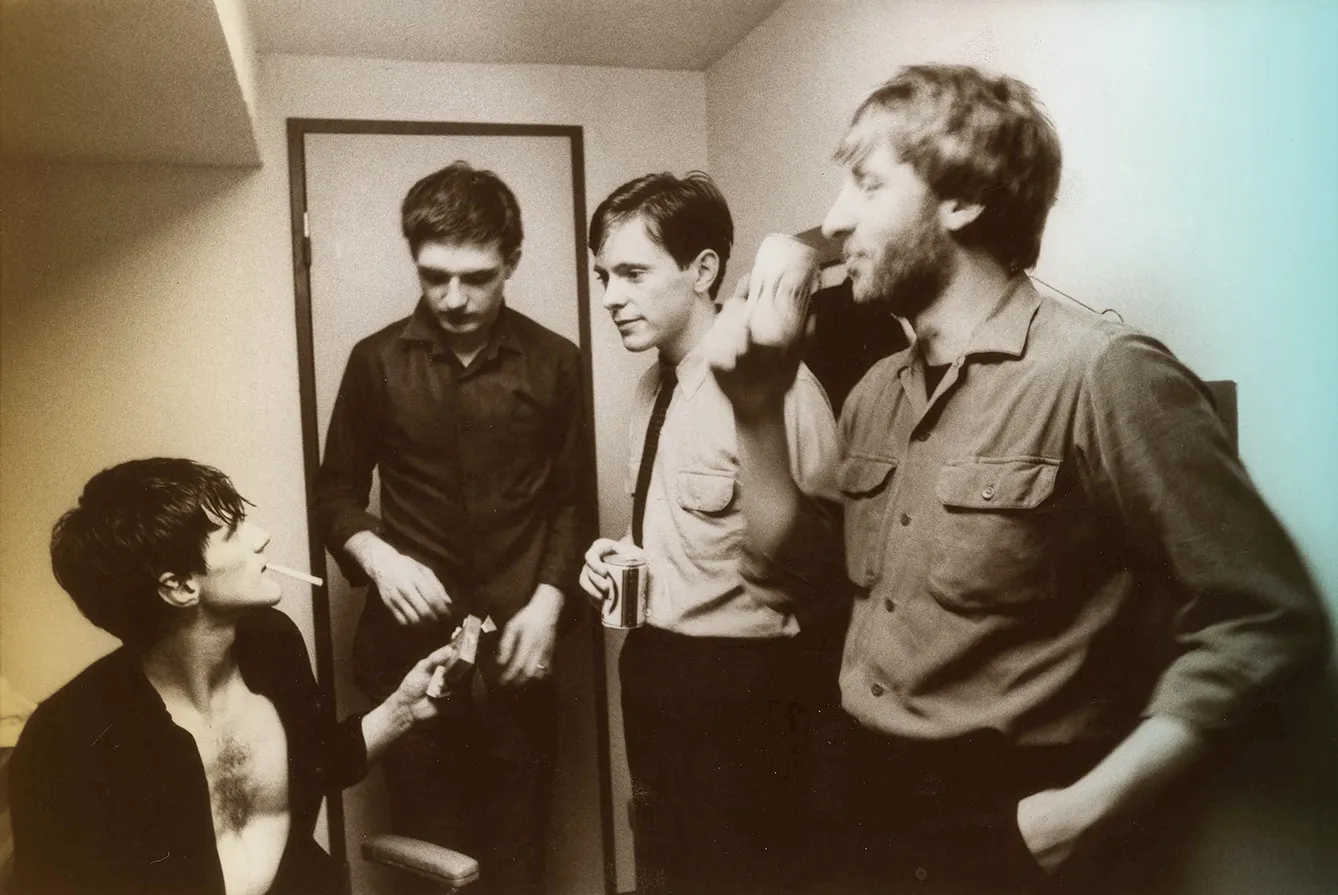Should you make a list of the saddest music bands in the world, Joy Division would make it into the top five. When they sing about love, it is surely supposed to tear you apart in multiple ways. Its lead singer, Ian Curtis, struggled with depression and committed suicide aged 24. Its background was poverty, and its music was melancholy. Joy Division was so melancholy that it was almost named after the Polish capital, Warsaw.
But to tell the story properly, we have to go back to another world-famous musician.
David Bowie in the grey city
In the mid-1970s, the British post-punk music scene witnessed the formation of one of its most prominent bands. Warsaw, as in the city, not the song, was seen as a sad town, especially compared to those in the West. Though, in all fairness, against the backdrop of the overall Polish economy, it was not. This decade saw major industrial and economic development, and Edward Gierek, the First Secretary of the Polish Communist party in the decade, made some moves to introduce a so-called “good life.”
Still, it was part of a centrally planned economy focused on improving international trade balance and serving as a part within a framework of the Communist Bloc, and means to that were in large industry – coal mining, metallurgy, and so on. The good life was limited in scale, hence the color palette of Polish cities: gray.
Enter David Bowie, who, by the 1970s, was already a famous and charismatic British singer and performer. One of the all-time masters, Bowie was appreciated on both sides of the Iron Curtain and gave concerts there in 1973 and 1976. To get to the capital of the Soviet Union, he changed trains in the capital of Poland, Warsaw.
Here, technical stops delayed the musician, so Bowie took a walk in the city. And, as one version of the story has it, the artist stopped by a record shop near Paris Commune square (now named after US President Woodrow Wilson) and bought the record of a Polish folk song reconstruction ensemble, Śląsk.
This vinyl record was the only souvenir – or even proof – of Bowie’s stroll in Warsaw. Not long after, Bowie moved from LA to Berlin to escape the cocaine-indulging opportunities of the American city, where he started working (with Brian Eno) on the album “Low.” The album’s 9th track is called: Warszawa. (Warsaw, in Polish)
Is it Joy Division, or is it Warsaw
Bowie and Eno’s ballad is a multilayered, slow-paced ambient composition, which, again, could be considered sad. Ian Curtis, already inclined toward depression, heard the song and was inspired to create his own composition called Warsaw. The song, recorded in 1979, opens the four-track EP of Joy Division. The 12″ record’s cover is lo-fi industrial, depicting an entanglement of building scaffolding, and the color palette is – you guessed it – gray.
But, technically, the song’s history doesn’t start there, as it was supposed to have been released a year earlier, in 1978. Originally, Warsaw was supposed to be the title of the whole album. Not only that, but Joy Division was not Joy Division yet, and Warsaw was also the band’s name for a short period.
It was one of the attempts at a good name for the band. The first proposal: Stiff Kittens, was rejected by most of the band, and Bowie was already legendary enough to be an inspiration. However, the name got scrapped as there was another band with a similar name – Warsaw Pakt, referring to the military alliance, the Communist version of NATO, signed in the Polish capital.
House of Dolls that became Warsaw
By then, Ian Curtis was under the influence of the 1953 novella “House of Dolls.” Published under the pseudonym Ka Tzetnik 135633, the book describes (factually dubious) “houses of pleasure” supposedly existing in the Nazi death camps, where “joy divisions” were separate prison blocks for German officers’ sexual slaves. This troubling association won out, and the post-punk music scene got its iconic band.
“Warsaw,” the Joy Division song, is not really even about Warsaw – it tells the story of the German Nazi dignitary Rudolf Hess and his admiration for, and later disillusionment with Adolf Hitler, his effort to end the war behind the Fuehrer’s back, his last days in prison, and eventual suicide.
Curtis committed suicide just two years after his successful debut. His band Joy Division didn’t survive him but retains its cult status. Warsaw is not the saddest song in the band’s short career, with the iconic “Love will tear us apart” an even better candidate for the title. And Warsaw, the city, is no longer grey – even if it was when David Bowie was inspired by his first impression.







